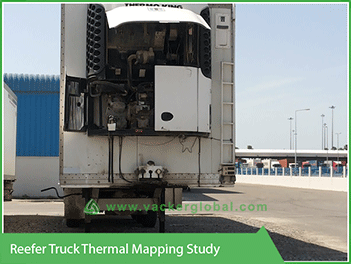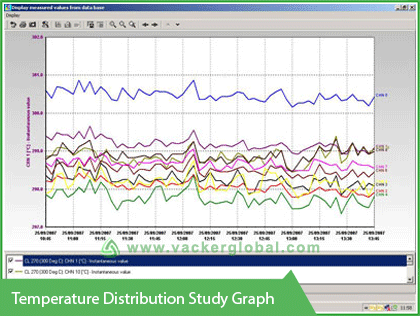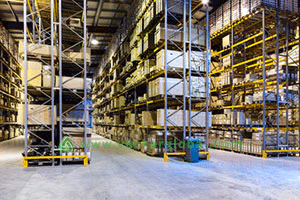
In order to analyze room temperature, Temperature Mapping Study needs to be performed. Vacker Saudi Arabia or KSA does mapping study of temperature for different sectors and areas like storage and transportation of temperature-sensitive goods such as vaccines, medicines, etc. Temperature Mapping Study is also known as Temperature Distribution Study or Thermal Mapping Study.
We, at Vacker Saudi Arabia or KSA, carry out humidity and temperature mapping studies in regions or areas like Dammam, Riyadh, Al Khobar, Jeddah, etc.
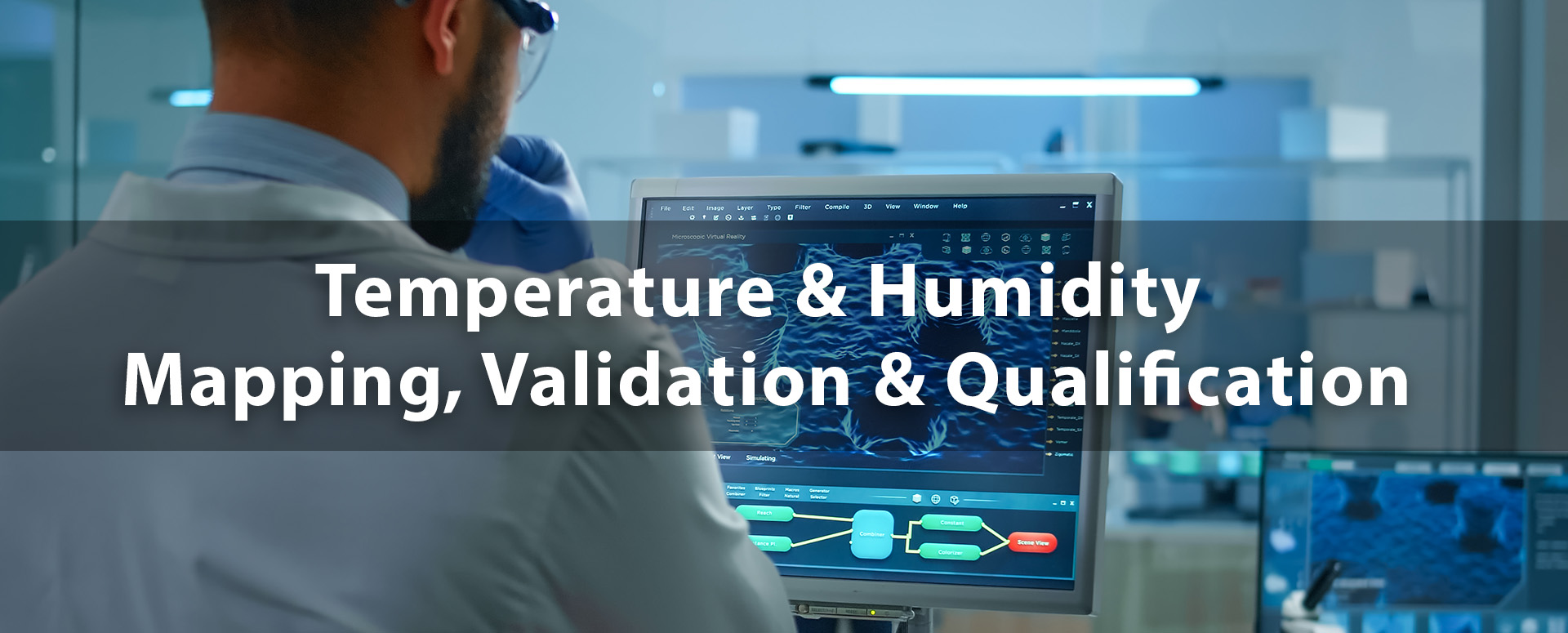
Why temperature mapping study is required for storage and transportation of medicine and in Saudi Arabia or KSA, Riyadh, Al Khobar, Dammam, Jeddah, etc.?
Manufacturers recommend certain temperature for the product and Vacker Saudi Arabia or KSA’s Temperature Mapping Study ensures that. The temperature has to be controlled and monitored continually throughout the chain and monitoring ends only after delivery to the end-user. There is a range to be maintained for medicines to be studied. For example, some medicines have to be stored at 2 to 8 degrees centigrade whereas some others at 16 to 26 degrees centigrade.
Mapping study of temperature is also named as Temperature Distribution Analysis and it is carried out in cold rooms, refrigerator, storage, warehouses, boxes, vans, reefers, etc. which are mostly used for transportation and storage of temperature-sensitive goods.
Once a medicine is out of the factory, there is a chain of transportation including transporter, regional distributor, a local agency, and then to a local distributor. Throughout this chain temperature is required to be under control, non-compliance to which can decrease the efficacy of the product without knowledge of the supplier and consumer.
What is temperature mapping study viz. Thermal mapping study in Saudi Arabia or KSA, Riyadh, Al Khobar, Dammam, Jeddah, etc.?
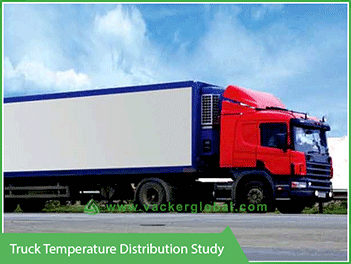
As an example we can take a controlled van for the transportation of medicine. It is required that temperature be maintained between 2 to 8 degrees centigrade. In one corner of the vehicle cargo compartment, a cooling unit is mounted. A control unit is installed in the driver’s cabin and is controlled by the driver or technician. The control unit is set to be at 5 degrees centigrade and the chamber of cargo is to be around 5 degrees centigrade, all the given time.
Even if the cargo is completely vacant, sometimes it is not feasible to maintain temperature stability between the defined temperature range. For example, the corners away from the cooling unit may not receive as much cooling as the area next to it.
If the temperature distribution across the van is not uniform, some medicines will not be useful and will lose their effectiveness. This should be controlled by the driver or technician of the vehicle.
A similar scenario can be applied to storage areas like warehouses, cold rooms, refrigerators, etc.
How to perform a Temperature Mapping Study and how it can be useful for Saudi Arabia or KSA?

Temperature Mapping Study is performed by recording the temperature within an area for a fixed interval continuously. This is achieved using different types of Temperature Data Loggers supplied by Vacker Saudi Arabia or KSA to regions or areas such as Dammam, Riyadh, Al Khobar, Jeddah, etc. Data loggers are positioned at various areas within a closed region.
A temperature data logger records the data of temperature and can be read on the graph. Data is collected from the data logger device for two or more days depending on the type of the application and it is then used for analysis. Data is then downloaded and analyzed.
For the predetermined period of time, data loggers continuously record data. Data loggers record data for 4 to 6 days in cold room temperature mapping study. Data collection will be for 7 to 14 days in a continuous manner. It is almost the same for a typical season or climate so it is not needed to take mapping for a long period. Ideally, two to three days, including one holiday is the right duration for carrying out a temperature mapping study.
Humidity and Temperature mapping study in Saudi Arabia or KSA
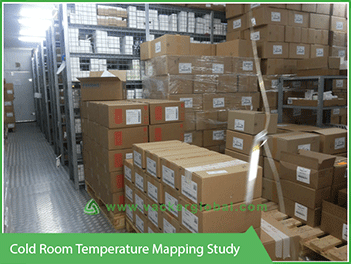
For many countries, temperature is not the only parameter that has to be controlled. Another crucial parameter is humidity. Vacker Saudi Arabia or KSA deals with humidity and temperature mapping study in regions or areas such as Dammam, Riyadh, Al Khobar, Jeddah, etc., using Humidity Data Loggers and Temperature Data Loggers.
Generally, temperature along with humidity mapping is done for pharmaceuticals. When humidity is high a Dehumidifier has to be used and when low a Humidifier has to be used. Medicine is a sensitive product and is needed to be under control. During transportation as well as storage, temperature mapping is required which is recorded by a temperature data logger. Also, for medicine storage and transportation, humidity recorders record humidity, and mapping is done through it.
What is the difference between Temperature Qualification and Temperature Mapping study based on Saudi Arabia or KSA temperature for warehouse, van, cold room, etc.?
Temperature Qualification carries a full report analysis of the entire area like cold room or storage whereas a Temperature Mapping Study is only for behavioral pattern. This is to ensure that operation, installation, design conforms to the expected behavior.
A company that has expertise in the fields of electrical engineering and mechanical engineering can only perform a qualification study. Because it involves lots of related methods based on mechanical and electrical tests.
Procedure involved for suitable Qualification study for Saudi Arabia or KSA:
- Verification and Qualification of the design
- After design, verification as per the design documents install equipment.
- Check that the system assets and equipment are installed correctly.
- Operational verification and qualification so that all the equipment is operated well.
- Perform Temperature Mapping Study to analyze temperature distribution. If humidity also has to be studied then both temperature and humidity mapping study needs to be performed.
Please read more on Temperature Qualification Study

